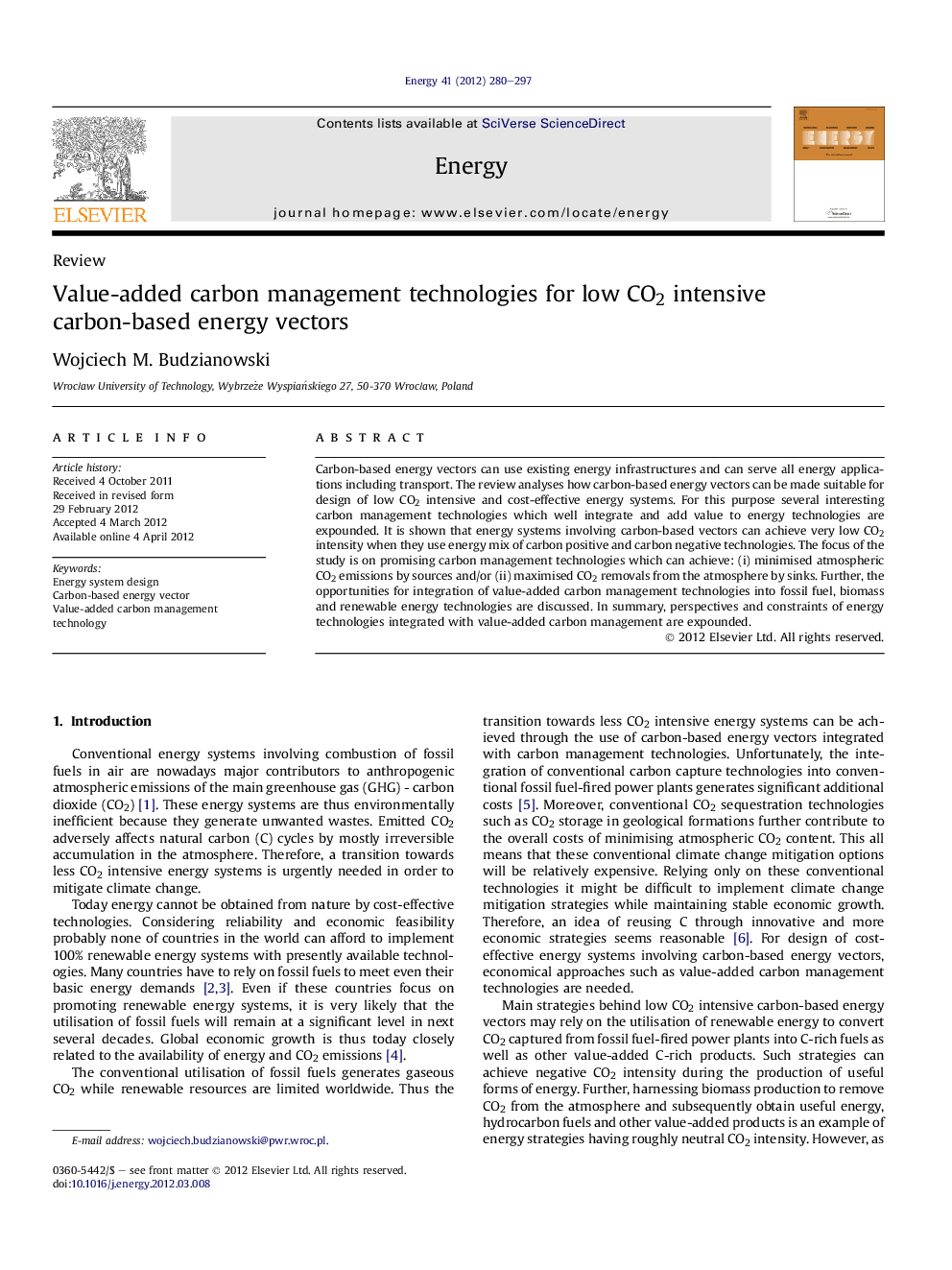| Article ID | Journal | Published Year | Pages | File Type |
|---|---|---|---|---|
| 1733503 | Energy | 2012 | 18 Pages |
Carbon-based energy vectors can use existing energy infrastructures and can serve all energy applications including transport. The review analyses how carbon-based energy vectors can be made suitable for design of low CO2 intensive and cost-effective energy systems. For this purpose several interesting carbon management technologies which well integrate and add value to energy technologies are expounded. It is shown that energy systems involving carbon-based vectors can achieve very low CO2 intensity when they use energy mix of carbon positive and carbon negative technologies. The focus of the study is on promising carbon management technologies which can achieve: (i) minimised atmospheric CO2 emissions by sources and/or (ii) maximised CO2 removals from the atmosphere by sinks. Further, the opportunities for integration of value-added carbon management technologies into fossil fuel, biomass and renewable energy technologies are discussed. In summary, perspectives and constraints of energy technologies integrated with value-added carbon management are expounded.
► Carbon-based energy vectors can adapt existing energy infrastructures and serve all energy applications. ► The review of energy technologies is provided in three categories: fossil fuels, biomass and non-biomass renewables. ► The addressed value-added carbon management technologies aim at minimising CO2 emissions and maximising CO2 removals. ► Perspectives and constraints of addressed technologies are provided.
